- Latin America & Caribbean Water & Sanitation Initiative
- Sierra Madre Water Program - Mexico & Guatemala
- Santo Domingo La Cascada Water System Project - Mexico
- Esperanza Water System Project - Guatemala
- CABIOCHI Water Project - Mexico
- Loma Bonita Water Project - Mexico
- Water Project for Barrio San Miguel, Ejido de Benito Juarez, Chiapas, Mexico
- Poblado Ocho de Julio Water Project - Mexico
- Barrio Las Cruces Water Project – Mexico
- Rancheria El Horizonte y Los Cocos Community Water Project – Mexico
- Rancheria Salanueva Water Project - Mexico
- Ampliación Nueva Lucha Water Project - Mexico
- Barrio Nuevo Eden Water Project - Mexico
- EORM Xoljoc Handwashing Station Project – Guatemala
- Cipresal Water System Project - Mexico
- Xelajú Chico, Hector Paniaguas y Barrio Reforma, Water System Relief Project - Mexico
- Progreso Water System Project – Mexico
- Miguel Aleman Water Project - Mexico
- Cipresal La Cascada Water System Project - Mexico
- Hermosillo Water Project - Mexico
- Rancheria El Roble Water Project - Mexico
- Los Laureles Water Project - Mexico
- Las Cruces Water Distribution Project - Mexico
- Alvaro Obregon Water System Project - Mexico
- Agua Prieta Water System Project - Mexico
- Escuela Oficial Rural Mixta La Muchacha Handwashing Station Project - Guatemala
- Escuela Oficial Rural Mixta San Lorenzo Water Storage Project – Guatemala
- Checute Water System Project - Mexico
- EORM Chonimabaj Cafeteria Water Supply and Storage Project - Guatemala
- Barrio Tierra Linda Water Project - Mexico
- Niquivil Water System Project - Mexico
- Loma Linda Water Project - Mexico
- Asociación de Agua Chapultepec Water System - Mexico
- Gavilan Water Project - Mexico
- A Project to Create Access to Water for Libertad La Fuente - Mexico
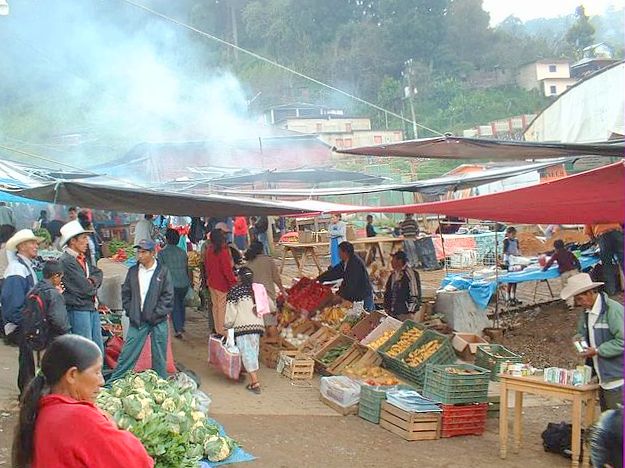
WATER CHARITY and the NATIONAL PEACE CORPS, together with The SEXTO SOL Center for Community Action, announce the implementation of the: SIERRA MADRE WATER PROGRAM – MEXICO & GUATEMALA
The program is designed to provide safe water, effective sanitation, and public health services for 300 villages in the Sierra Madre Region of Chiapas, Mexico, through an unprecedented collaboration of the three organizations.
With a target budget of $2,100,000, the program will be implemented in 15 phases, each addressing the needs of 20 villages. Phase 1 is budgeted for $140,000 in improvements. Phase 1 is already well underway!
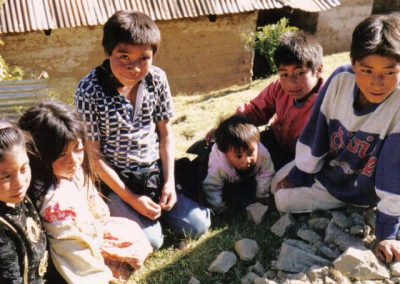
The program focuses on supplying drinking water using the appropriate technology for each village, with the objective of also providing water for sanitation, hygiene, and agriculture. Benefits will be sought in reducing morbidity and mortality, improving quality of life, improving food security, and providing economic opportunities for direct participants and the community at large.
The projects to be implemented will be those requested by the individual villages to address their specific needs. A complete needs survey for the entire program is well underway, while specific project planning for Phase 1 villages is nearing completion, and preliminary planning continues for each successive village.
The design of each project will incorporate measures to maintain the improvements after completion, thus ensuring sustainability far into the future.
Sexto Sol will provide on-the-ground management of the program and the individual projects. The National Peace Corps Association and Water Charity will raise money for and publicize the program, and recruit Returned Peace Corps Volunteers (RPCVs) to assist with project implementation. Water Charity will participate in the planning, execution, and evaluation of the program, train the RPCVs to perform their tasks, and provide for their deployment.
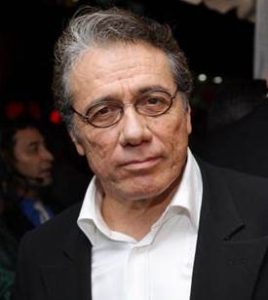
Valued Support and Endorsement
We are honored to receive the recognition, support, and endorsement for this program from Edward James Olmos, renowned director and actor of stage and screen.
Mr. Olmos was nominated for an Academy Award for Best Actor in a Leading Role for the film Stand and Deliver, the only Hispanic-American to be nominated in that category. His career encompasses another 22 wins and 24 nominations. Among his great achievements, he is also recognized for his roles in Battlestar Galactica, Miami Vice, Selena, El Pachuco, and both the stage and film versions of Zoot Suit.
Mr. Olmos is known for his social activism, especially involving the U.S. Hispanic community. He narrated a portion of the movie Zapatista, showing the plight of the Campesinos in Chiapas in the mid-90s.
I am pleased to endorse the work being done by the Sexto Sol Center in partnership with Water Charity to bring potable water and sanitation to impoverished communities in Chiapas. I have stood behind the Sexto Sol Center since they began their service in Chiapas 17 years ago. I know what they are capable of doing. Water Charity is an experienced leader with an impressive track record of bringing clean water and sanitation to under-served communities in 63 countries worldwide. This is the ideal team to efficiently make these much needed improvements in the quality of life for people in the remote mountain villages. I encourage you to support this effort by Water Charity and the Sexto Sol Center. Your support will help them improve the lives of thousands of people. The world will be better for it.
Edward James Olmos
Program Location
This program is being implemented in the Municipalities of Motozintla, Siltepec, El Porvenir, La Grandeza, and other locations in Chiapas, Mexico as well as culturally and linguistically contiguous communities across the border in Guatemala.
300 villages have been chosen for consideration at this time. As the program winds through its various phases, a specific list of target communities will be compiled. To see a complete list of the municipalities in Chiapas, CLICK HERE.
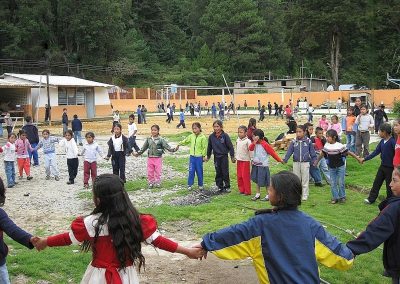
Needs
The Sierra Madre mountain range rises from the coastal plain, reaching over 10,000 feet in elevation. This important watershed has 98 rivers that flow to the mangrove forests on the Pacific Coast and feed the Grijalva River on the inland side. The land is very rugged with steep slopes and countless sharp ridges that fall away on all sides into canyons.
The watershed was severely clear cut about 20 years ago with no reforestation implemented. This left the region extremely vulnerable to natural disasters that have causeed great hardship for the people living there. Most notabe were the disasters of 1998 and Hurricane Stan in 2005, both of which devastated the region with material losses that are still felt to this day.
Seasonal flooding causes damage regularly to deforested slopes resulting in major landslides that have become a “normal” occurrence. An active fault and volcanic rumbling create a lot of seismic activity which in July, 2014, resulted in damage to thousands of adobe homes in the poorest areas.
The region is dotted communities of people engaged in agriculture (campesinos). They depend on raising subsistence crops and small scale farming of potatoes, wheat, or coffee to sell. It is considered to be the most impoverished region in Mexico. When then-President Fox visited the region he made the sad announcement that El Porviner town was the poorest town in the country.
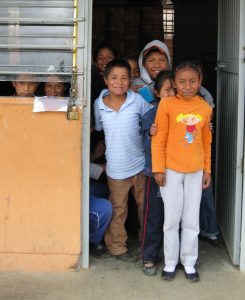
The people are Maya from three language groups, Mam in the high country, C’atok or Mocho in Motozintla and Tusantan, and Kaqchikel in the Mazapa area. The majority of the people are Mam.
In the 1960s a government program attempted to force acculturation on the population through a form of institutionalized racism that prohibited the people from speaking their language. Elders still speak Mam, but the middle aged population for the most part does not. Children and youth, therefore, have some confusion about their identity. This history has caused great pain and it leads people to not admit to being indigenous. Very few people wear the traditional clothing.
Malnutrition is the norm and is most evident in the children who do not reach normal height and often have trouble paying attention in school. Drought, loss of cultivated land to landslides, and the failure of the coffee crop all have contributed to the furthering of poverty for households in recent years.
When a family member falls ill, the expense can be devastating, sometimes forcing a family to have to sell their land. People die from curable diseases and illnesses that have been eradicated in most of the world are still a problem.
Adult illiteracy is common, with many people over 40 years of age having only attended 2 years of formal schooling. This has improved for children now with better access to rural schools, but typically the teachers are students who have not completed their teacher training.
The Sierra Madre is a mineral-rich region with foreign mining companies eager to strip mine a variety of minerals on the lands inhabited by the people. The tension caused by this looming future is worrisome for the people.
The Sierra Madre region has not received development assistance from the government or from international organizations. The Sexto Sol Center is the only international NGO with a long-term presence in the Sierra Madre.
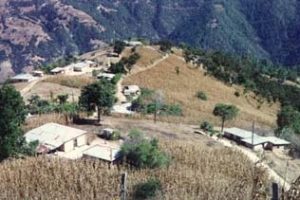
Typical Projects
This program is working toward ensuring water for all household uses, including for drinking, cooking, sanitation, and hygiene in 300 communities. It also provides for irrigation of the family and community gardens.
Typically, a community has an old water system that was built years ago, but many households do not receive water, and the system does not meet the needs of the population. The appropriate technology is to capture the water at the source and build a holding tank, and then install a water line over rough terrain to the village.
Typical projects include wells, pumps, rainwater catchment systems, aqueducts, water storage systems, water purification solutions, erosion control, reforestation, flooding prevention, and irrigation systems.
An effort will be made to encompass all of the water, sanitation, and public health needs of each village in a village-designated project. Within the project, there may be several stand-alone sub-projects, say, for example, at a school and at a clinic.
Hygiene and sanitation are inextricably tied to the goal of achieving a safe water source. Hand washing stations are crucial to allow for effective hygienic practices, especially in the schools clinics, and community centers. Bathrooms, erosion prevention, and flooding prevention and remediation are necessary to protect the water sources.
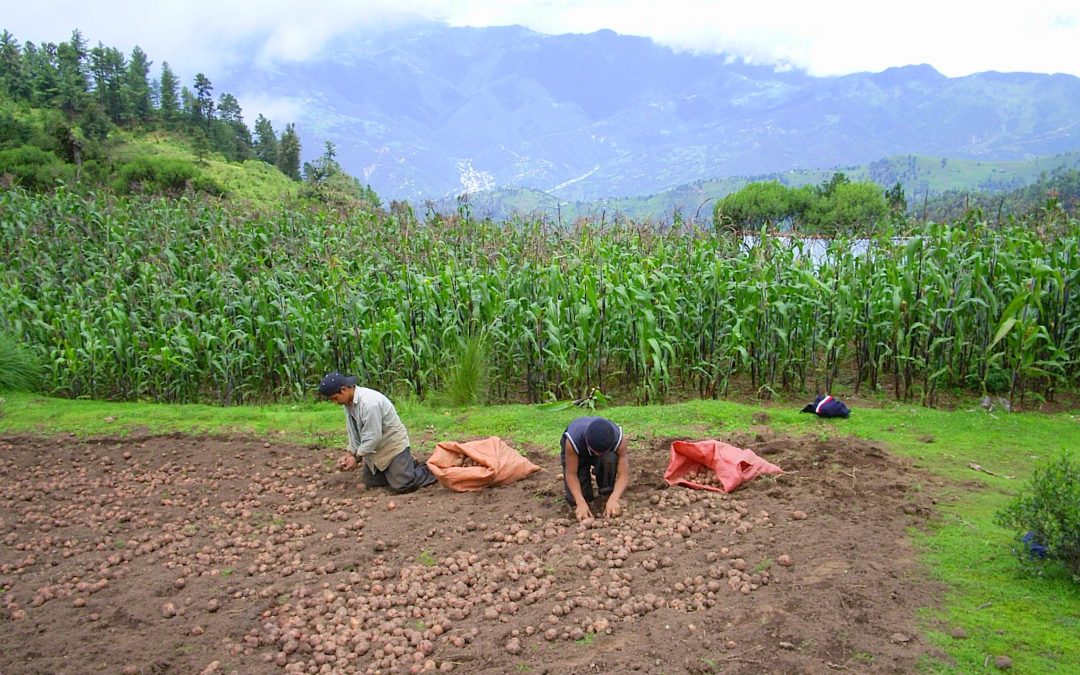
Projects Underway & Completed
The program was begun with overall planning ascertaining village project needs and moving forward with project-by-project implementation. The first project was implemented in December, 2014, and we have already completed 8 village wide projects!.
This list will be updated with links to the project pages as new projects begin, and there is another list at the end of this posting:
Cipresal Water System Project – Mexico
Xelajú Chico, Hector Paniaguas y Barrio Reforma, Water System Relief Project – Mexico
Progreso Water System Project – Mexico
Niquivil Water System Project – Mexico
Miguel Aleman Water Project – Mexico
Esperanza Water System Project – Guatemala
Santo Domingo La Cascada Water System Project – Mexico
Cipresal La Cascada Water System Project – Mexico
Agua Prieta Water System Project – Mexico
Checute Water System Project – Mexico
CABIOCHI Water Project – Mexico
Hermosillo Water Project – Mexico
Loma Linda Water Project – Mexico
Los Laureles Water Project – Mexico
Barrio Nuevo Eden Water Project – Mexico
Asociación de Agua Chapultepec Water System – Mexico
Gavilan Water Project – Mexico
Las Cruces Water Distribution Project – Mexico
Alvaro Obregon Water System Project – Mexico
Ampliación Nueva Lucha Water Project – Mexico
Rancheria Salanueva Water Project – Mexico
Barrio Tierra Linda Water Project – Mexico
Rancheria El Horizonte y Los Cocos Community Water Project – Mexico
Loma Bonita Water Project – Mexico
Water Project for Barrio San Miguel, Ejido de Benito Juarez, Chiapas, Mexico
Barrio Las Cruces Water Project – Mexico
Poblado Ocho de Julio Water Project – Mexico
Program Management
The program is being managed by Tamara Brennan, Ph.D., Executive Director of The Sexto Sol Center for Community Action, which serves impoverished communities in the Sierra Madre region of Chiapas, Mexico, near the border with Guatemala.
Sexto Sol previously completed the School Flooding Remediation Project – Mexico in 2010 in partnership with Water Charity.
The Incorporation of Returned Peace Corps Volunteers
The program introduces the groundbreaking concept of utilizing Returned Peace Corps Volunteers (RPCVs) in the direct implementation of the projects in each of the communities. RPCVs are people who have returned home after having completed 3 months of training plus 2 years of service in a developing country. They have considerable experience in the community development process and the management of water and sanitation projects.
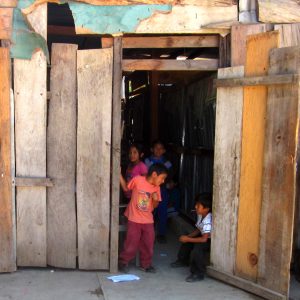
Water Charity has previously worked with dozens of RPCVs in the implementation of projects. These are dedicated people who have decided to remain in the country after their PC service, people who went to work for local NGOs, which they bring into the process, or people who return to the country after they have been home for a while. We have also collaborated with RPCVs who have gone on to serve in the Peace Corps Response Program, a short-duration commitment to a specific project assigned by the Peace Corps.
This program is completely unique in scope: It will be the first time that a significant number of RPCVs are being deployed on a large-scale program as volunteers, funded by donations from individuals, corporations, and foundations, to serve under the direction of a local nonprofit.
The RPCVs will be recruited by the NPCA, trained by WC, and deployed to Motozintla for a set, but renewable, term.
The recruitment process will utilize the structure of 139 NPCA Member Groups, which are determined by country of service and hometown.
It is anticipated that several RPCVs will come from the Returned Peace Corps Volunteers of Los Angeles (RPCVLA), one of the Member Groups with close ties to Water Charity.
The RPCVs will be fluent in Spanish and have substantial knowledge of and experience in community development. They will “hit the ground running”.
The RPCVs will train the villagers and work side-by-side with them in the detailed planning, implementation, and evaluation of the projects.
The RPCVs will volunteer their time. WC will provide funds for their travel. Sexto Sol will provide management, lodging and in-country transportation.
Benefits
| Entire Program | Phase 1 of 15 | |
| Budget | $2,100,000 | $140,000 |
| Population | 70,000 | 4,666 |
| Number of Villages | 300 | 20 |
| Number of Projects | 900 | 60 |
| Cost/Project | $2,333 | $2,333 |
| Cost/Person (3 projects) | $10 | $10 |
This program will benefit about 70,000 people in 300 communities by providing each of them with a reliable supply of safe water and access to effective sanitation, thereby improving the health and well-being of all who reside in the region. Phase 1 will help 20 of those communities, and will serve as a proven model for the rest of the program, developing a skilled labor pool and a reliable and economical supply chain for materials and equipment.
Program Funding
Donors may contribute to the whole Phase 1 effort, to be allocated where needed for projects by clicking on the DONATE button below, or by donating on the individual project pages, as new projects are started under the program.
Corporate and foundation donations are welcome and encouraged, and amounts and attribution rights will be negotiated.
Individual donations of any amount are encouraged. Every donation of $100 or more toward the overall program will be recognized on this page.
If you wish to donate “in honor of” or “in recognition of” or “in appreciation of”, please include the wording on your donation form or in an email directed to mail (at) watercharity.com If you wish for your donation to be anonymous, just let us know.
Fundraising Target
$140,000 for Phase 1 ($2,100,000 for the 15-phase program)
You can make a difference by helping us improve the lives of thousands of families in the Sierra Madre with your tax-deductible contribution.
![]() *****
*****
Water Charity
Water Charity is a 501(c)(3) nonprofit, established in 2008 and headquartered in California, that does water, sanitation, and public health projects around the world. Since that time, 1,800 projects in 65 countries have been implemented.
National Peace Corps Association
The National Peace Corps Association was founded in 1979 and is headquartered in Washington, D.C. with a mission to championing lifelong commitment to Peace Corps values. The goals of NPCA are to help the Peace Corps be the best that it can be and help returned Peace Corps Volunteers (RPCVs) and RPCV groups thrive.
The Sexto Sol Center for Community Action
The Sexto Sol Center serves impoverished communities in Chiapas and Guatemala, where a change of vision and specific technical assistance can help people create a better life. Since 1997 Sexto Sol has assisted people to create success with cooperative businesses, grow health-giving food, improve neglected schools for their children, regain cultural pride, protect the watershed, create eco-villages and heal from the trauma of disaster and conflict.
